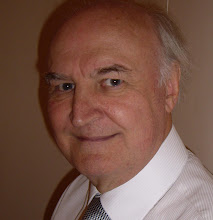Grant the mystery of his conception,
and stories of his childhood seem less strange,
whether man or angel was his father
is subsumed in his claim to be divine.
Was Attis conceived from an almond seed
falling into his mother's lap from Zeus
or Adonis sprung from a tree of Myrrh,
Caspar's gift to the newly born Jesus?
A small child walked through a field in Egypt,
idly gathered ears of corn in his hand,
cast them in the fire, ground and then ate them,
and each grain taken returned full measure.
Persephone's child might have done as much,
inventing daily bread as well as wine,
but preferred indolence to childish play
and was eaten up as a sacrifice.
At three, Mary's lamb played with other boys.
He put a dried fish in a bowl and said:
"Now move fish, swim for your life", and it did.
"Cast out your salt and dwell in this water".
The neighbours denounced him to the widow,
with whom his mother lodged, and she cast them out.
Was she cross about what happened because
the dried fish was for The Feast of Shamo?
Walking in the market place with Mary,
he burst into laughter when twelve sparrows
fell quarrelling into a teacher's lap.
"Bring him to me", the teacher told his boys.
The angry schoolmaster twisted his ear:
"And what are you laughing at, Hebrew boy?"
The child opened his hand to show the corn
and said, "I scattered it to make them fight".
The boy stood firm until the corn was gone,
saying, "they brave danger for what they prize,
and will not leave till they have it." For this,
the master had them cast from the city.
Back in Nazareth, in the pouring rain,
the five year old got water in a pool
and commanded it to become quite clear,
and out of the clay he made twelve sparrows.
It was Sabbath, and there were children there,
who told Joseph how his son had transgressed.
When questioned by his father, Jesus said
to his birds, "Fly away and do not die."
These lustful and active birds, sacred to
Aphrodite, bear dead souls to the sky,
or perch upon the cross and chirping say,
"He is not dead, and will rise up some day".
One of the boys, a Pharisee, boldly
emptied the pool out with an olive branch,
but Jesus dried him like a leafless tree
and he fell stricken, dead upon the ground.
The sign of mercy from the Father's wrath,
emptying his little flood, vexed the Son,
and, like Eden's tempting fig, he withered
the child who dared to tamper with his works.
The Pharisaic letter of the law
was dead, and drained the spirit from God's word
and like the tree that bears no fruitful weight
it did not deserve life's watery spring.
Some days later, while Joseph and his son
were walking in the market place a child
hit him on the arms: Jesus said, "Finish
your run," and the child fell dead in the road.
After the outcry, Joseph reproved him.
Jesus, said, "I know these are not your words",
and those who had complained were struck down blind.
When Joseph saw this, he seized him by the ear.
Jesus was vexed, and said, "It is enough
for you to see me without touching me.
If you knew me you would not anger me,
for I was made long before you were born."
Seeing wisdom in the child, one Zacheus
offered to teach him letters and good sense.
"No man can teach him, but God," Joseph said,
"he will only bring torment to your life".
Jesus overheard them talking and said,
"O master, everything I say is true,
and I am before all men, and am Lord.
Unto you nothing is given: for I am
before all worlds and know when you will die".
When the Jews heard his words, they were angry
but they were unable to answer him.
The boy turned and said, "I spoke a proverb
to you, but you are weak and know nothing."
Joseph took Jesus to the master's house
and the master taught him aleph to tau,
speaking gently to him, with flattery,
but the child would not repeat the letters.
Angry, the teacher hit him on the head.
"I know all the letters you would teach me,"
the pupil said, and repeated them all,
"But you do not know how to interpret them".
Some say the master was confounded and
recognised the wisdom of the boy but
others that Jesus became so angry
that he cursed the master, who then fell dead.
Many days later, another master came
and offered to teach the prodigy.
At the Doctor's house, Jesus opened a book,
but preached rather than read out the contents.
The master listened attentively, as
Jesus spoke of the law, and encouraged
those who had gathered there to marvel at
the holy doctrine of which the boy spoke.
Afraid, Joseph ran to the master's house,
but the teacher had much praise for the boy.
Jesus was joyful at the master's praise
and raised up the one he had slain before.
With such wonders, the demon child punished
those who despised his words and restored to
life those who had offended him, showing
that he was lord and master of the world.








